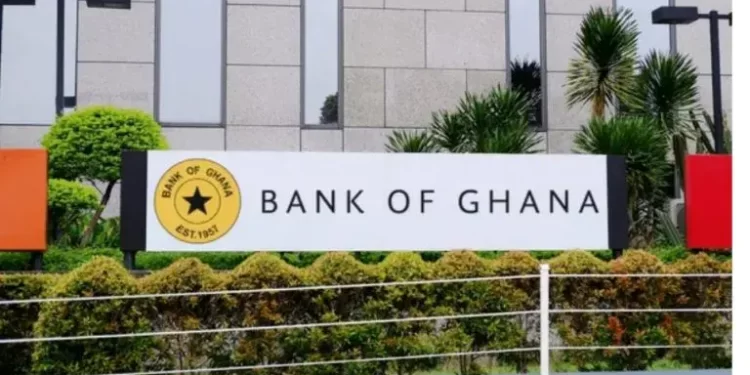The Bank of Ghana has set November 3, 2025, as the start date for applications from firms seeking licences to operate as Digital Credit Service Providers, in a move aimed at tightening regulation of Ghana’s fast-growing fintech credit industry.
The Central Bank announced the timeline in a statement on Tuesday, adding that it has also issued a new directive outlining eligibility criteria, licensing requirements, and operational guidelines for institutions interested in offering digital credit services.
According to the directive, applicants must have a minimum capital of GHC2 million, maintain a transaction limit of GHC10,000, and pay a licence fee of GHC20,000. Licences will be valid for two years, after which renewals will be required. Applications are to be submitted through the Bank’s Online Regulatory Analytics Surveillance System (ORASS).
The regulator cautioned that the notice does not automatically authorise existing fintech and non-bank entities currently offering mobile-based loans to continue operating without approval. “Prospective applicants are required to adequately acquaint themselves with the directive and comply accordingly,” the Bank stressed.
What Are Digital Credit Services?
Digital credit refers to loans and credit services delivered through mobile applications, digital wallets, and fintech platforms. These services often provide short-term, small-ticket loans to individuals and businesses who may lack access to traditional bank financing.
Read Also: Consumers face marginal rise in electricity costs by 1.14% – PURC
In August 2025, the Bank of Ghana officially designated Digital Credit Services as a non-banking financial activity, signalling its intent to bring greater oversight to a sector that has grown rapidly but largely unregulated.
The Central Bank said regulating the sector is crucial to deepening financial inclusion, broadening access to credit, and protecting consumers from predatory practices by unlicensed lenders.
With this move, Ghana joins a growing number of African economies formalising digital lending to balance innovation with consumer protection and financial stability.

























